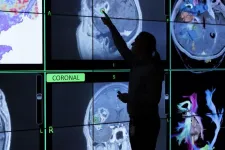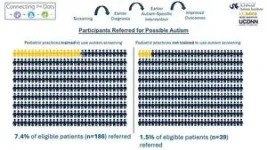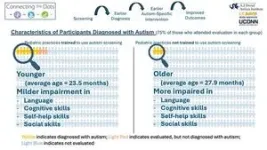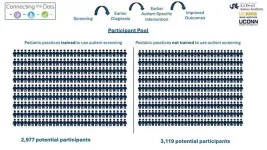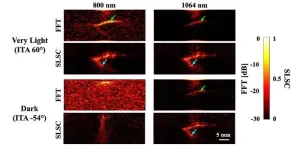INDIANAPOLIS — An international, multidisciplinary team of leading neuro-oncology researchers and clinicians has released new recommendations for good clinical practice — a set of guidelines that helps ensure clinical trial results are reliable, and patients are protected — regarding the use of artificial intelligence methods to more accurately diagnose, monitor and treat brain cancer patients.
The team recently published two companion policy reviews in The Lancet Oncology, on behalf of the clinically authoritative Response Assessment in Neuro-Oncology cooperative group, which is a collaboration of international experts who develop standardized criteria for evaluating treatment response in clinical trials for brain cancer.
Indiana University School of Medicine’s Spyridon Bakas is the lead author on the second policy review, which establishes guidelines for standardization, validation and good clinical practice of AI for neuro-oncology. He said the new recommendations are a much-needed update to the current standard of care in which individual radiologists measure tumor size, which dictates treatment options. This is not ideal, Bakas said, because the assessment is often subjective. Each radiologist can interpret imaging scans differently, leading to treatment strategies that fluctuate based on who views the scan.
“We can use AI to look at images of the tumors more objectively,” said Bakas, the Joshua Edwards Associate Professor in Pathology and Laboratory Medicine and the director of the Division of Computational Pathology at the IU School of Medicine, as well as a researcher in the IU Melvin and Bren Simon Comprehensive Cancer Center. “AI programs can help determine quickly what type of disease it is, what subtype of tumor and what particular grade it is, in addition to helping track the progress of a lesion during treatment.”
According to the team, there are predictive, prognostic and diagnostic AI models and solutions that are becoming available for health care practitioners, but how they are used varies widely at different institutions.
“Thanks to new technology, there are ways to use AI to help assess whether a tumor is progressing or is stable,” said Raymond Y. Huang, associate professor at Harvard Medical School and neuroradiology division chief at Brigham and Women’s Hospital in Boston, Massachusetts. “However, there needs to be a standardized way to use AI to accurately diagnose and treat patients.”
The team reviewed existing research articles and publications related to current advancements of AI in the field to develop the guidelines, which were presented at this year’s American Society of Clinical Oncology meeting in Chicago, Illinois, and the annual meeting of the European Association for Neuro-Oncology in Glasgow, Scotland. The guidelines will also be presented at the Society for Neuro-Oncology meeting in November in Houston, Texas.
Some of the authors’ guidelines include:
Using software that has been developed using large and importantly diverse cohorts of patient data.
Ensuring the AI models for defining a tumor follow World Health Organization criteria.
Considering how the tumor images are obtained, processed and segmented before analyzing them.
“These guidelines are critical for ensuring that AI tools developed in the U.K. and beyond meet rigorous standards and improve patient outcomes,” said Thomas Booth, a co-author from King’s College London. “With these recommendations, we can move towards more accurate, standardized AI applications that benefit both clinicians and patients across the U.K. and internationally.”
Because AI is still new, these recommendations are among the first in the world regarding its proper use in cancer care. However, further study is necessary.
“It is important that we continue our study of these AI models on large, diverse patient populations to continue extending our understanding of disease and improving the way we use them,” Bakas said.
Other authors on the study include Philipp Vollmuth of the University of Bonn; Norbert Galldiks of the University of Cologne; Hugo JWL Aerts and Wenya Linda Bi of Harvard Medical School; Benedikt Wiestler of Technical University of Munich; Pallavi Tiwari and Marwa Ismail of the University of Wisconsin; Sarthak Pati and Ujjwal Baid of the IU School of Medicine; Philipp Lohmann of the Research Center Juelich and the RWTH Aachen University, Germany; Martha Nowosielski of Medical University Innsbruck; Rajan Jain of New York University; Rivka Colen of the University of Pittsburgh; Ghulam Rasool and Michael Vogelbaum of the H. Lee Moffitt Cancer Center and Research Institute; Evan Calabrese of Duke University; Janine M. Lupo, Susan M. Chang and Javier E. Villanueva-Meyer of the University of California San Francisco; Hamed Akbari of Santa Clara University; Joerg C. Tonn of Ludwig-Maximilians-University of Munich; David MacDonald of the London Regional Cancer Program; and Christos Davatzikos of the University of Pennsylvania.
This research was supported by the National Institutes of Health, the U.S. Department of Veterans Affairs, the U.S. Department of Defense, the Dana Foundation David Mahoney Neuroimaging Program, the V Foundation for Cancer Research, the European Union’s European Research Council, the Deutsche Forschungsgemeinschaft (German Research Foundation), and more.
About Indiana University School of Medicine
The IU School of Medicine is the largest medical school in the U.S. and is annually ranked among the top medical schools in the nation by U.S. News & World Report. The school offers high-quality medical education, access to leading medical research and rich campus life in nine Indiana cities, including rural and urban locations consistently recognized for livability. According to the Blue Ridge Institute for Medical Research, the IU School of Medicine ranks No. 13 in 2023 National Institutes of Health funding among all public medical schools in the country.
For more news, visit the IU School of Medicine Newsroom: medicine.iu.edu/news
END
